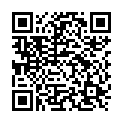|
|
|
| Module code: WIBASc225 |
|
|
2V+2U (4 hours per week) |
|
5 |
| Semester: 2 |
| Mandatory course: yes |
Language of instruction:
German |
Assessment:
Written exam
[updated 13.09.2018]
|
WIBASc225 (P450-0012) Industrial Engineering, Bachelor, ASPO 01.10.2013
, semester 2, mandatory course
|
60 class hours (= 45 clock hours) over a 15-week period.
The total student study time is 150 hours (equivalent to 5 ECTS credits).
There are therefore 105 hours available for class preparation and follow-up work and exam preparation.
|
Recommended prerequisites (modules):
WIBASc115 Principles of Business Administration I (BWL I)
WIBASc125 Industrial Management
[updated 20.01.2020]
|
Recommended as prerequisite for:
WIBASc-525-625-FÜ20 Market Segmentation and Other Marketing and Market Research Questions in Practice (Seminar)
WIBASc-525-625-FÜ36 Technology and Innovation Management (English)
WIBASc-525-625-FÜ42 Design Thinking & Business Model Innovation
WIBASc-525-625-FÜ7 Moderation and Leadership (Seminar)
WIBASc-525-625-W11 Technical Sales and Distribution (Seminar)
[updated 09.03.2021]
|
Module coordinator:
Prof. Dr. Christoph Berger |
Lecturer:
Prof. Dr.-Ing. Christian Köhler
[updated 20.01.2020]
|
Learning outcomes:
Procurement Logistics:
After successfully completing this module students will:
_ be able to recognize the efficiency potential of logistics _ especially procurement logistics and make targeted use of it
_ have mastered common methods of conventional purchasing
_ understand the efficiency potential of JIT purchasing and can apply it
_ be competent enough to select and use the optimal mode of transport in procurement
Technical Sales and Distribution:
After successfully completing this module students will:
_ be familiar with the theoretical and practical principles of sales and distribution, as well as the empirical results of distribution research
_ have insight into the topic of sales and distribution based on a well-balanced mixture of theoretical knowledge and practical experience
_ be able to list characteristics of capital goods markets and determine the resulting implications for the strategic and operative orientation of sales and marketing
_ be able to draw on both generally applicable and industry-specific sales knowledge and apply the instruments and methods discussed.
[updated 13.09.2018]
|
Module content:
Procurement Logistics:
1. Basics
1.1 Terms
1.2 Success factors
2. Procurement logistics
2.1 Basics
2.2 Needs assessment
2.3 Procurement/Purchasing
2.4 Just-in-time procurement (JIT)
3. Transportation logistics
3.1 Own-account transport
3.2 Commercial freight transport
3.3 Rail
3.4 Inland vessels
3.5 Seagoing vessels
3.6 Air freight
Accompanying exercises and case studies on all topics
Technical Sales and Distribution:
1. Conceptual and theoretical prinicples of sales and distribution
2. Structuring and managing sales and distribution
3. Personal selling/Communication techniques
4. Business-to-business marketing and technical sales
5. Special challenges of industrial goods marketing
6. Preparing quotes, calculating and processing orders for technical goods
[updated 13.09.2018]
|
Teaching methods/Media:
Procurement Logistics:
A regularly revised PowerPoint presentation, also available to students as electronic lecture notes, will be used for the module. On a case-by-case basis, video sequences will illustrate what has been learned in the course of the module.
Technical Sales and Distribution:
A regularly revised PowerPoint presentation, also available to students as electronic lecture notes, will be used for the module. On a case-by-case basis, video sequences will illustrate what has been learned in the course of the module.
[updated 13.09.2018]
|
Recommended or required reading:
Procurement Logistics:
_ Arnold, D./Isermann, H./Kuhn, A.: Handbuch Logistik; 3. Auflage; Springer, 2008
_ Clausen, U./Vastag, A.: Handbuch der Verkehrs- und Transportlogistik; 2. Auflage, Springer, 2008
_ Ehrmann, H: Logistik; 6. Auflage; Kiehl Verlag; 2008
_ Gudehus, T: Logistik I und II; 3. Aufl.; Springer Verlag; 2006
_ Günther/Tempelmeier: Produktion und Logistik; 8. Auflage; Springer, 2009
_ Koether, R. u.a: Taschenbuch der Logistik; 3. Auflage; Hanser; 2008
_ Oelfke, W.: Speditionsbetriebslehre;39. Auflage; Bildungsverlag Eins; 2010
_ Pfohl, H.: Logistiksysteme; Betriebswirtschaftliche Grundlagen; 8. Auflage; Springer; 2009
_ Schulte, C.: Logistik; Vahlen; 5. Auflage; 2009
_ Wannenwetsch: Integrierte Materialwirtschaft und Logistik; Springer Verlag; 4. Auflage; 2009
_ Weber,J.: Logistikkostenrechnung; 3. Auflage; Springer Verlag; 2012
Technical Sales and Distribution:
_ Backhaus, K./Voeth, M.: Industriegütermarketing, 9. Auflage, Vahlen, 2009
_ Klimke, R./ Faber, M.: Erfogreicher Lösungsvertrieb; Gabler, 2008
_ Kuhlmann, E. (2001): Industrielles Vertriebsmanagement; 1. Auflage, Vahlen Verlag, 2001
_ Winkelmann, P.: Marketing und Vertrieb, 7. Auflage, Oldenbourg Wissenschaftsverlag, 2010
[updated 13.09.2018]
|

